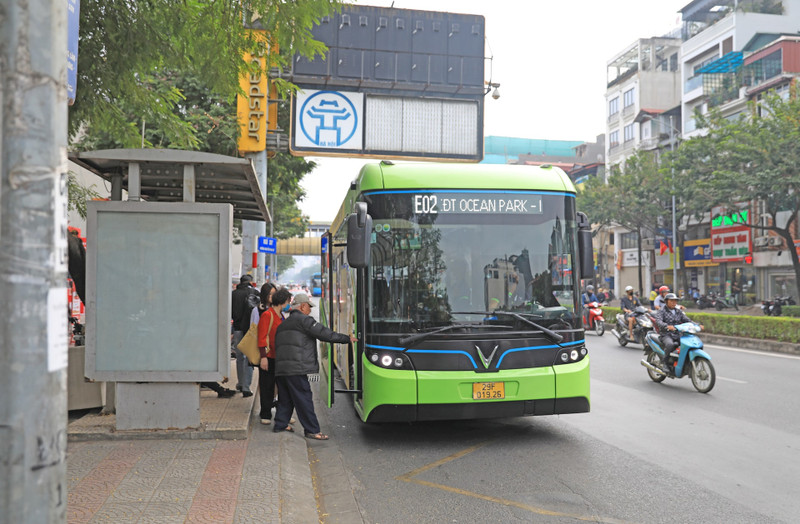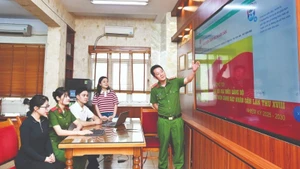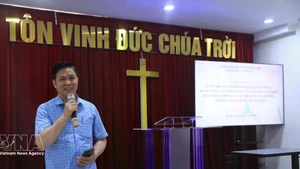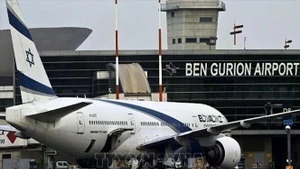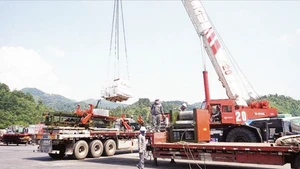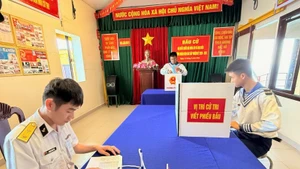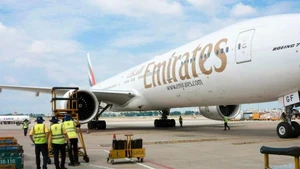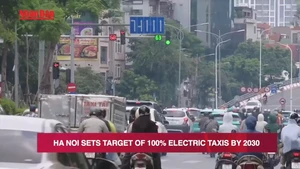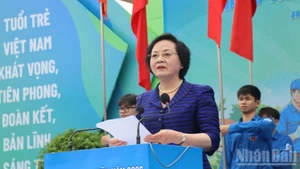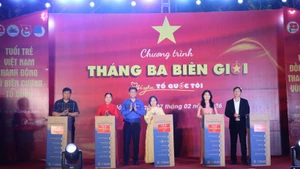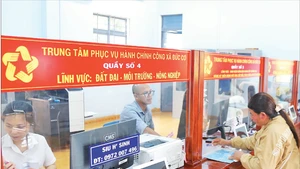Expressing their support, public bus operators also hope that the city will soon issue support mechanisms and policies to help them achieve this goal.
Target completion 15 years early
The Hanoi People’s Committee has just approved a project on developing a green public transport system, under which the switch to electric and green energy buses in the city will reach 70-90% by 2030 and 100% by 2035. Thus, Hanoi’s bus-greening goal will be achieved 15 years ahead of the prime minister’s requirements.
At the beginning of 2025, four public operators in Hanoi, namely Transerco, Newway, Hai Van, and Bao Yen, will begin operating five electric bus routes with 76 vehicles. Additionally, for the bus routes whose contracts expire in 2025, large diesel buses will be converted to large electric buses. The total number of vehicles expected to be converted in 2025 is 103, equivalent to 5% of the overall target.
The 2026-2030 period will see the conversion of 1,813 vehicles. The conversion rate to electric and green energy vehicles by 2030 is expected to reach 93.4% of the total vehicles.
The 2031-2035 period will see 238 vehicles converted. By 2035, the conversion rate to electric and green energy vehicles is expected to reach 100%.
According to calculations by functional agencies, to switch to green buses as per the above roadmap, Hanoi needs 48.625 trillion VND (1.9 billion USD). Of this figure, the city budget needs 35.996 trillion VND (1.4 billion USD). The remaining 12.629 trillion VND (500 million USD) must be arranged by operators to purchase vehicles, pay part of interest costs, and invest in charging infrastructure.
Newway Director Pham Duc Hoc said that despite numerous difficulties, the company is still making efforts to urgently implement procedures for vehicle investment and charging station infrastructure; as well as to recruit drivers to soon operate 18 electric buses on routes 47A (Gia Lam Bus Station - Bat Trang) and 47B (National Economics University - Kieu Ky) in early 2025 as required by the city. Furthermore, the company is calculating operating frequency to ensure power supply for operation, and sending personnel to learn maintenance and repair experience.
Focus on preferential loan access
While emphasising support for green energy conversion, representatives of some transport businesses are still concerned about support mechanisms, business support policies, and access to loan sources.
Since 2019, Hanoi has stipulated that the city budget supports 50% of bank loan interest in the first 5 years to invest in large-volume public passenger transport infrastructure and purchase clean energy buses. However, until now, this has not been detailed. Meanwhile, at present, this 50% support level is no longer appropriate because the interest cost for buying electric vehicles has increased much more than buying diesel buses due to increased electric vehicle prices. Therefore, businesses hope the city will increase support to 70% and extend the support period to the entire loan period instead of only 5 years.
“To implement the conversion according to the set schedule, businesses want the city to soon introduce specific mechanisms and policies such as interest rate support to reduce costs for businesses; create conditions for businesses to access preferential loans to invest in vehicle conversion and charging station investment; and prioritise power sources for public passenger transport development,” Transerco Deputy General Director Ngo Xuan Phu proposed.
Regarding this issue, a representative of Hanoi’s Transport Management and Operation Centre under the Hanoi Department of Transport said that to support business operations, functional agencies will define common standards in service supply management. For interest rate support, the Hanoi People’s Council has set out 50% interest rate support in the initial period. However, the implementation process still has obstacles, and the Hanoi Department of Transport is evaluating and adjusting the terms accordingly.
